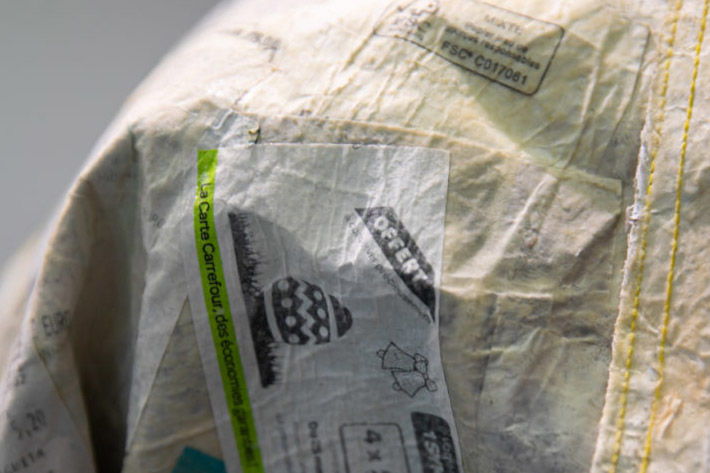90.5% of respondents intend to change the way to buy clothes: Study

Around 90 per cent of the respondents intend to change the way they want to buy clothes, as per the latest study conducted by the IFM-Première Vision Chair, involving 6,000 people in 5 countries namely France, UK, Italy, Germany, and the United States. These respondents are neither fashion experts nor particularly knowledgeable about manufacturing processes.
The study shows the strength of a market that now represents one third of the clothing budget and the immense expectations of consumers who are determined to keep moving towards more responsibly produced items. However, what this study, led by Gildas Minvielle, director of IFM’s Economic Observatory, illustrates above all is a great need for clarification on materials and production methods that are still poorly identified.
In 2022, 2 out of 3 European respondents (65.4 per cent French, 65.3 per cent German, 56.9 per cent British, and 58 per cent American) have purchased at least one eco-responsible fashion item. As for the amount spent, these products now account for one-third, 30 per cent, and 21 per cent of the French, German and American respondents surveyed, respectively.
The movement has not altered the well-established trifecta of criteria for choosing a garment: price, comfort, and quality. In 2022, price ranks first, just ahead of quality for Europeans, and comfort for Americans. As for style: it is no longer a consideration linked to the ecological aspect (only 12 per cent of French respondents said that style can be an obstacle to a potential eco-responsible purchase).
“In the months ahead, it seems evident that the number-one disincentive will be price. «With the return of inflation and increasingly tight household budgets (as fuel and food prices go up), the decision to buy clothes could become more complex,” said Minvielle.
In three countries out of five, the materials used are perceived as the main lever for a more responsible fashion industry. In Germany, the United Kingdom, and Italy, one consumer out of three (30.1 per cent of British, 31.5 per cent of Germans, and 38.6 per cent of Italians) cited materials as the primary motivation for buying eco-responsible clothing. Materials thus appear a key consideration for consumers, who note another dimension that has gained momentum in recent months: the place of production. In two of the countries studied here, an eco-responsible piece of clothing is first of all an item that was produced locally, according to 33.4 per cent of French and 42.6 per cent of American respondents.
Respondents were also asked which brands they approve of in terms of respect for the environment. On this subject, answers across the five countries surveyed are very homogeneous. Well-known textile multinationals – in particular, sports equipment manufacturers and fast fashion chains – ranked among the top 5 eco-responsible brands.
Among those who do not yet buy sustainable fashion, 40.2 per cent of respondents in France say they are held back by a lack of information. This figure rises to 49 per cent in the United States. In the same population, more than one customer out of three claims to not know where to find such products—another information gap to fill. This highlights the second major obstacle to growth for environmentally responsible fashion businesses. Nine out of 10 people say that they intend to change the way they buy clothes, but they have not acted on it yet because they lack information.
The Première Vision x IFM study shows that only connoisseurs and specialists know about them, and that it is particularly urgent to introduce them to the general public, which has been looking forward to such innovation. For example, only 5.2 per cent of French respondents and 3.7 per cent of Germans know about materials derived from agricultural waste. Even more striking for such promising materials, biopolymers (textiles synthesised from renewable resources) are known to very few people in the five countries studied: 1.8 per cent in France, 1.5 per cent in Germany, 3 per cent in Italy and the United States, and a mere 2.1 per cent among the British.
Fibre2Fashion News Desk (RR)
































-Ltd..jpg?tr=w-120,h-60,c-at_max,cm-pad_resize,bg-ffffff)





.jpg?tr=w-120,h-60,c-at_max,cm-pad_resize,bg-ffffff)
.jpg?tr=w-120,h-60,c-at_max,cm-pad_resize,bg-ffffff)






